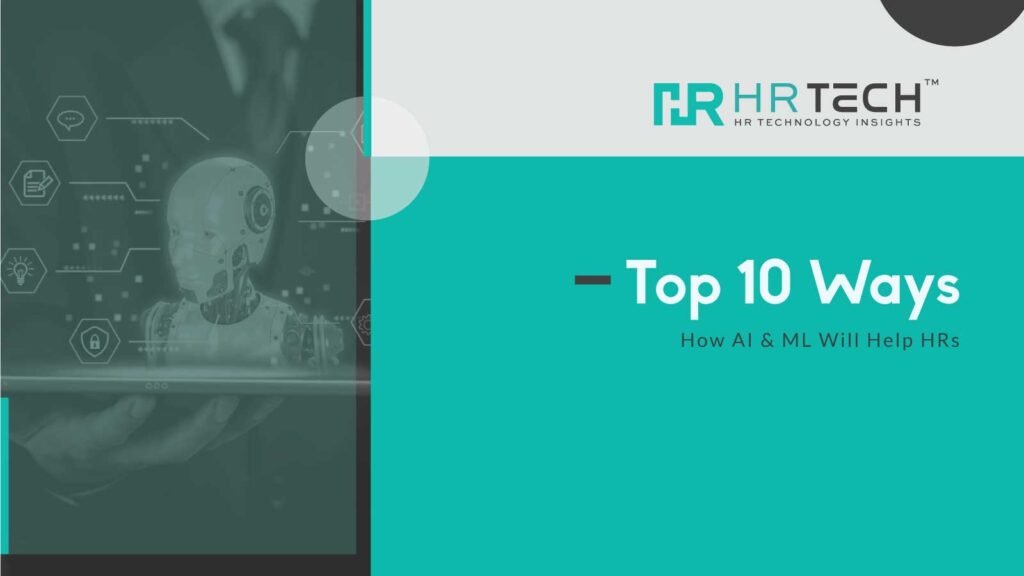AI & ML: The Future Of HR Operations
AI and ML are assisting companies to pace up their growth, even the HR industry is predicted to be dominated by advanced technologies. These technologies assist with tasks that are time-consuming and offer enough time for the HRs to focus on other tasks. The recruitment and onboarding process has been smoothened by the adoption of AI and ML in HR.
Artificial intelligence and machine learning can add a huge value to the HR processes by helping them simplify the entire HR process from recruitment to performance review. Other than being used in operational and administrative tasks, AI also provides valuable insights to help organizations plan their strategy. Various aspects of artificial intelligence and machine learning are to be taken under consideration to calculate the benefits in HR.
A common HR solution today is to invest in software that integrates machine learning and artificial intelligence. These platforms will streamline and automate multiple aspect of daily operations. However, the feature may vary, they could still cover multiple tasks such as candidate sourcing, job posting, screening, interviewing, selection, and analytics.
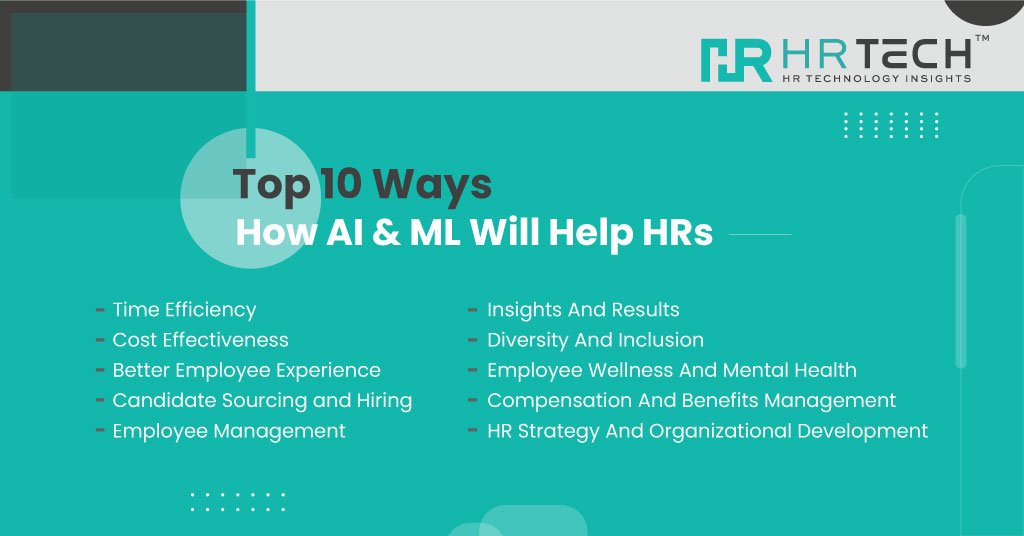
Visit HR Tech Blog: Top 10 Technologies To Help Get High-Quality Volume Recruitment
Top 10 Ways How AI & ML Will Help HRs
AI in HR refers to the deployment of natural language processing, machine learning and other advanced AI technologies to support decision making and automate HR processes. It also allows a data-based approach to employee advancement, talent acquisition, and employee retention. It also helps in mitigating bias and improve the employee’s and job seeker’s experience.
#1. Time Efficiency
Artificial intelligence and machine learning can revolutionize the entire hiring process. By automating the initial screening of countless applications, these technologies can quickly identify well-suited candidates as per the job’s requirements. While AI is invaluable for handling large datasets, human judgment remains essential to ensure the final selections are not only accurate but also align with company culture and values. Time efficiency is one of the most important factor to prove any tool or technology useful. AI helps with multiple time-consuming processes and gives HR-professionals time to emphasize on activities for the development of professional skills.
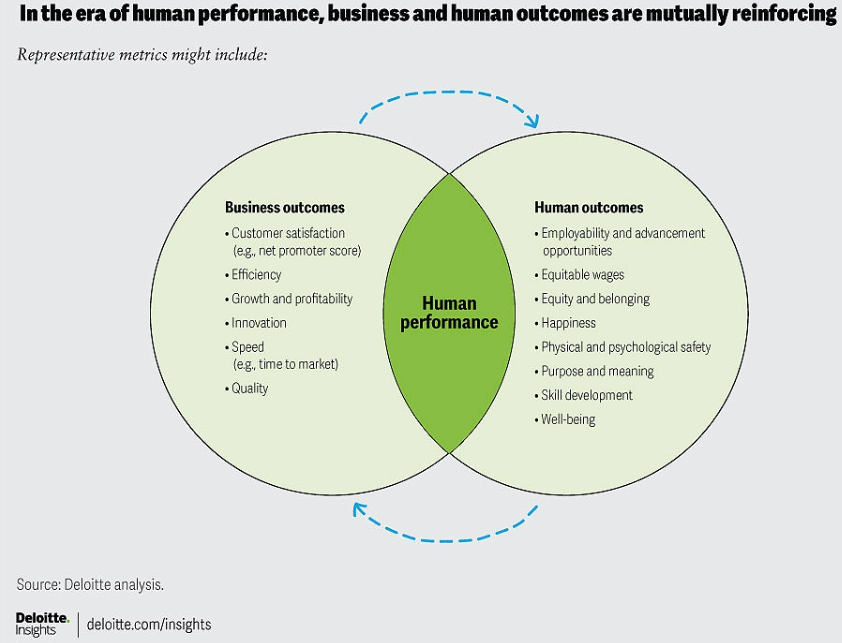
#2. Cost Effectiveness
AI can significantly accelerate tasks that would be time-consuming for humans. It can quickly process vast amounts of data, uncovering hidden patterns and insights. AI can even pinpoint the most effective places to recruit top talent, guiding your efforts and resource allocation. AI helps organizations save money and optimize the use of human and material resources through systematic streamlining of operations at all levels of human resource management.
#3. Better Employee Experience
AI tools and solutions are utilized to offer a better experience to the employees as well as the employer. Adopting AI and ML in HR also results in better employee retention. Employees can easily streamline their overall work, repetitive admin tasks, learn new tech skills, and focus on personal development. Investing resources and time in employee experience is turned out well in strengthening the organization’s brand and bringing benefits that naturally create a thriving environment.
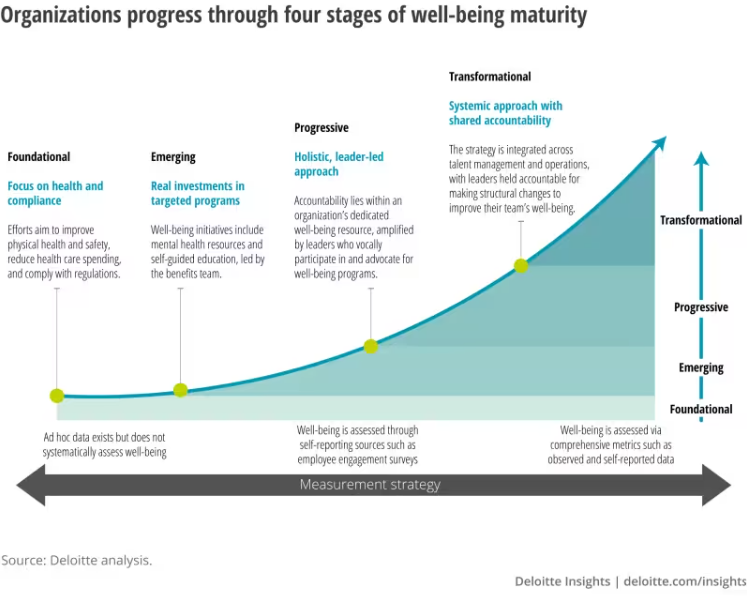
#4. Candidate Sourcing and Hiring
The hiring process is generally slow and may distract the potential candidate. AI can help gear up the process by helping manager cater each candidate automatically through integration of AI and ML in the process. It also allows the candidate to gain real-time notifications as soon as they apply for a position. Integration of AI and ML has resulted in better candidate satisfaction and has proven it effective.
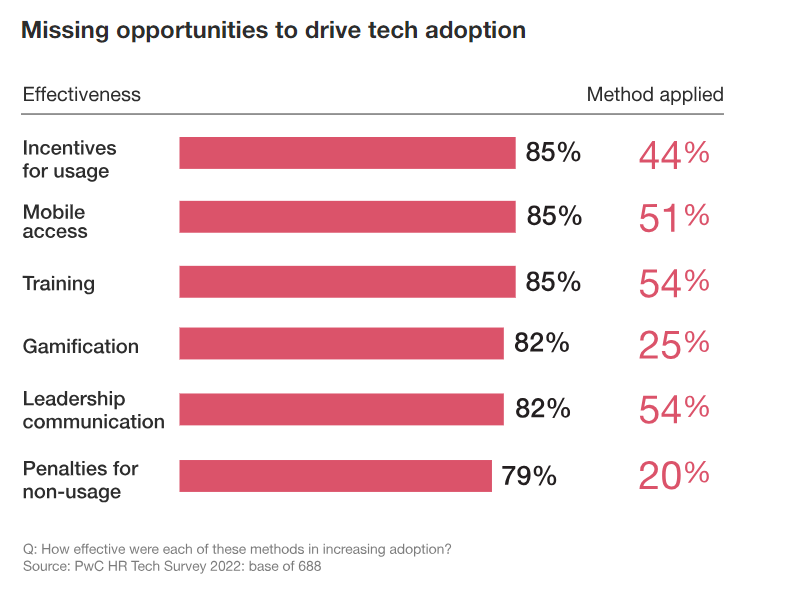
#5. Employee Management
AI is being leveraged for multiple aspects of employee engagement, including supporting learning and development. Employee experience is a key to talent management in modern organizations. Through AI capabilities, HR teams can address individual needs. For instance, infusing personal performance data with other employee data, AI will be able to offer a personalized internal upskilling or program development, or send signals to the manager about the engagement ratio at the workplace. AI technology contributes in offering better development opportunities and uncovering opportunities to a workplace for internal and external movements within the organization. In short, the use of AI improves employee performance as well as organizational productivity.
Visit HR Tech Blog: Key Takeaways from HRTech: Unlocking the Future
#6. Insights And Results
In today’s data-driven landscape, measuring outcomes of the processes plays a significant role in daily life of an HR professional. Integration of AI and ML into recruitment, employee performance, and employee engagement can help HRs gain insights and optimize performance. Advanced AI and automation solutions can also make the entire process of data management more efficient and create opportunities for improved data analysis and data management.
#7. Diversity And Inclusion
Analyzing previous data, AI tools can identify and address potential biases in recruitment and promotion processes. This helps organizations create a more equitable and inclusive workplace. Additionally, AI can analyze employee feedback to pinpoint areas for improvement in fostering an inclusive environment. By understanding the unique needs of different employee groups, HR teams can implement targeted initiatives that support diversity and inclusion, ultimately leading to better business outcomes.
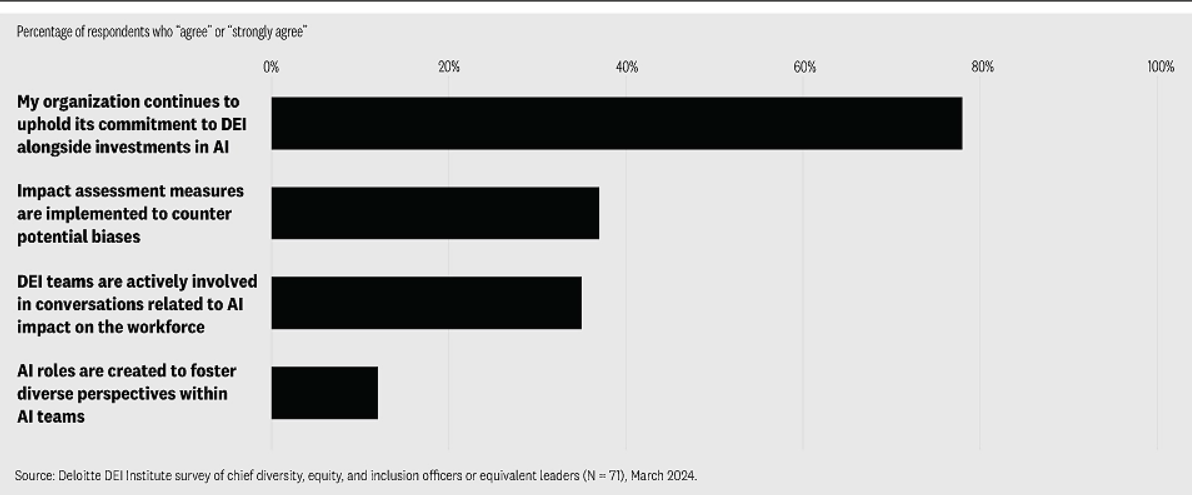
#8. Employee Wellness And Mental Health
AI and ML in HR can be utilized in monitoring employee wellness and mental health by analyzing data from multiples sources, such as performance reviews, employee surveys, and social media activity. This can also help HR professional understand employees who could be on the verge of burnout or facing mental health issues. It also allows HRs to intervene proactively and support those employee in need. Moreover, it can also help you customize wellness programs as per employee requirements, taking into consideration their individual needs. The companies can also help employees balance work and life and reduce the burnout or mental health issues risk.
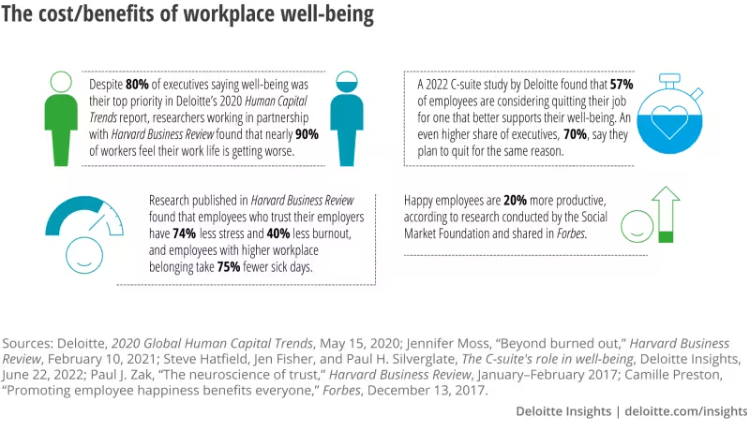
#9. Compensation And Benefits Management
AI-based payroll systems can automate upto 90% of the company’s payroll and benefits administration. This assists with streamlining the financial-side of the HR processes and optimize compensation with minimum glitches. Overall, intelligent automation and AI reduces errors and ensures employees are paid accurately and on time.
Additionally, AI can analyze compensation data to identify opportunities for optimization.
HR teams handling the competitive compensation packages can strategize their efforts, aligning their operations with employee performance. A smooth automated payroll and benefits management system running on AI is an attractive proposition, directly influencing talent management.
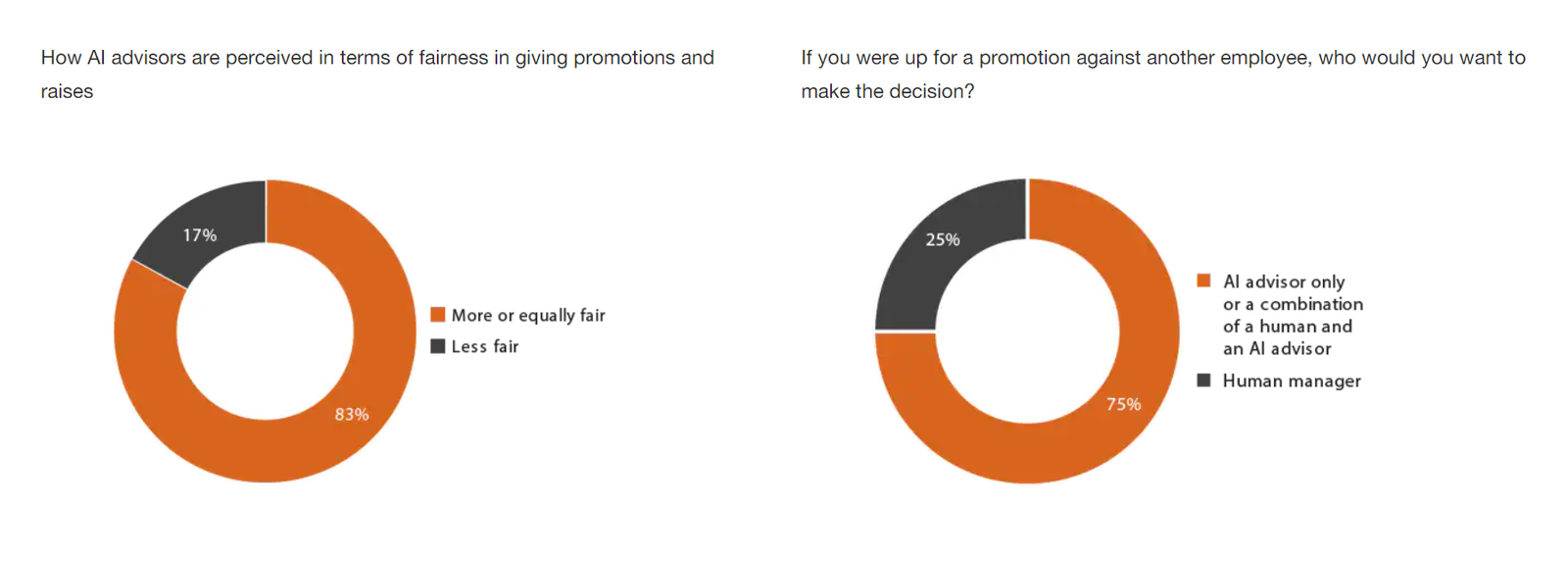
#10. HR Strategy And Organizational Development
Artificial intelligence in HR can help an organization make strategic decision by offering data-driven data into workforce trends, organizational performance, and employee engagement. By utilizing AI, HR professionals can create and implement effective management of human capital that aligns with organizational goals and gain long-term success.
Latest HRTech Insights: 10 HR Technologies To Influence Your Business
AI is a Game-changer for HR
The integration of AI and ML has tuned out unexpectedly well for HR departments. The AI toolkit is a one-stop shop for AI developers. It’s packed with essential tools, libraries, and resources that make building and deploying AI solutions a breeze. From popular frameworks like TensorFlow to pre-trained models and cloud platforms, you’ll find everything you need to create cutting-edge AI applications.
To share your HR technology insights and announcements, please write to us at news@intentamplify.com


